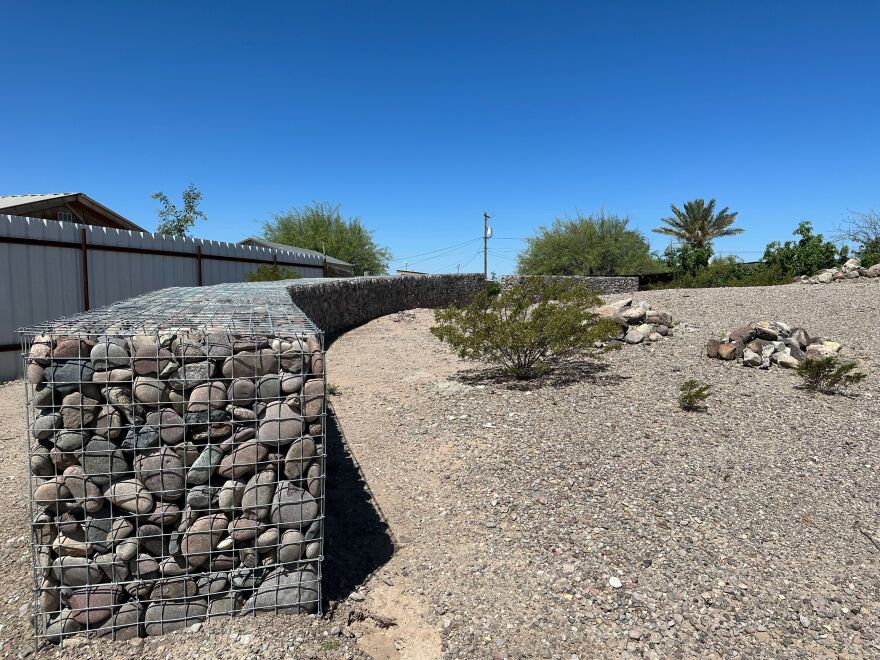An effort to protect a centuries-old Native American burial site in the Big Bend region has received a $650,000 grant that is being used in part for a study of “land reclamation” needs among local Indigenous people, advocates announced Monday.
The Big Bend Conservation Alliance, a local nonprofit, said the gift from the Mellon Foundation is largely going toward an Indigenous-led project to protect and memorialize the Cementerio del Barrio de los Lipanes in Presidio. The group received the grant in July and has been using the funds since then.
The cemetery’s use by members of the Lipan Apache tribe dates back to the late 18th century, but in modern times encroaching development and erosion has threatened the sacred site, prompting tribal members and others to push for its protection.
In November 2021, local officials voted to transfer ownership of the cemetery grounds to the Lipan Apache Tribe of Texas, a move widely hailed as a historic and rare example of land being repatriated to Native Americans in the United States.
Indigenous activists have in recent years led high-profile campaigns calling for such “land back” initiatives across the country, and the movement has led to other notable instances of Indigenous people regaining ownership of their ancestral lands.
“Land back is not something that happens on a regular basis within this country,” said Christina Hernandez, a member of the Lipan Apache Tribe of Texas with close ties to the cemetery and co-lead on the preservation project. “I’m just really proud of the community coming together around this project.”
Hernandez said while the grant funding amount is significant, most of it has already been spent on construction activities at the burial site that began in March.

The remaining grant funds are being used for what the Big Bend Conservation Alliance has described as a “land reclamation study.” The study, which is already underway, involves interviews with people “including Lipan Apache, Jumano, and Indigenous Peoples of La Junta — those who identify as Indigenous and Presidian, that may or may not be members of a specific tribe,” the nonprofit said in a statement.
According to Hernandez, the study is not seeking to identify actual parcels of land that could be returned to Indigenous people in the Big Bend area, but is instead focused on finding opportunities for what she called “re-indigenization.”
“We want to have projects that encourage cultural development, education, spirituality, learning,” she said. “It’s not tied specifically to land.”
As an example, Hernandez pointed to the Texas Tribal Buffalo Project, a Lipan Apache-led effort to bolster bison populations in the state and to “restore the traditional relationship” between the tribe and the animals, as the project’s founder Lucille Contreras has described it.
“That is a form of land reclamation,” Hernandez said. “That’s the kind of thing we’re looking at: how can we reclaim a portion of land and better our people, whatever that looks like.”
The interviews are being led by Maia Rodriguez, a researcher and professor at the University of New Mexico. Hernandez is also helping oversee the study component of the grant funding.
Advocates involved in the efforts say construction at the cemetery in Presidio should be finished by early next year, in time for a celebration and public reopening of the site in the spring. The land reclamation interviews are expected to continue into the summer.
For Hernandez, the story of the Cementerio del Barrio de los Lipanes and its return to Native people is an example for other communities - and officials - to follow.
“This is what’s made this story so important,” she said. “Throughout the whole country, we’re an example of where government can work with community, and do what’s right without it being a polarizing topic.”



